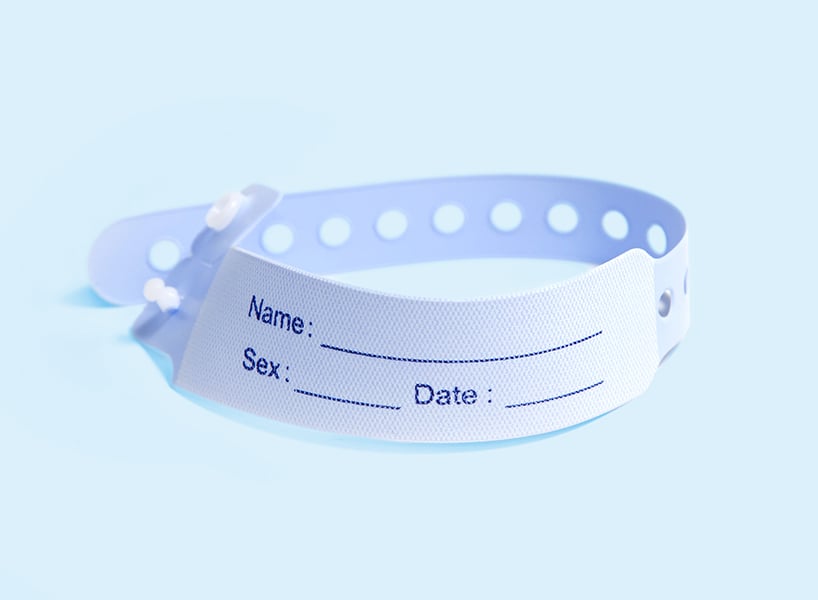The Way I Was Treated at a Hospital After My Suicide Attempt Was Humiliating
People living with mental illness are people, and just like anyone else we should to be able to access healthcare without being shamed and dehumanized


“I’m going to need your hairpins,” said the nurse rifling through my backpack.
“Pardon?” I said, confused.
“You hairpins,” she repeated testily. “You have to give them to me. They’re sharps.”
I slowly unpinned my bun and let my lank, unwashed hair fall around my face. She took the bundle of bobby pins I handed to her and placed it in a clear plastic bag labelled BIOHAZARD before continuing to dig through my backpack.
“What’s this?” she said, pulling something out of my bag. “A lighter? You said you didn’t smoke. Was there anything else you lied about on your intake form? Did you lie about your drug use?”
“But I didn’t lie!” I protested. “I don’t smoke and I don’t do drugs! I just have a lighter in case I need it.”
“You’re trying to tell me,” the nurse said witheringly, “that you carry a lighter with you just in case you ever need to light things on fire?”
She returned to my backpack, once again sorting the forbidden from the mundane. My purple Urban Decay compact went into the biohazard bag, because of its mirror—breakable, could be a sharp. The cord for charging my cell phone went into the bag, because it could be used to strangle someone. She pulled out my journal and briefly flipped through it before putting it back. The pen that had been tucked into my journal, however, went into the bag. It, too, was a sharp.
The nurse and I were in a little room in the ER of a big downtown hospital. I was at the hospital because I had tried to kill myself and we were waiting in this room until I was medically stable enough to be transferred to the psychiatric ward. The nurse was supposed to be prepping me for the transfer, but really that just meant pawing through my bag and asking me accusatory questions about all the detritus that had accumulated in it over the years. I’d been crying since I’d woken up that day and I was crying still; my sobs droned on in the background as this woman touched and sniffed and opened each tiny piece of my life. As I watched her, I thought about how private my backpack and its contents had always seemed; they were mine, after all, to be kept or revealed as I saw fit. But now that I was in the hospital, nothing about me was allowed to be private anymore—not my possessions, not my body, and certainly not my thoughts.
In spite of the nurse’s questions, I had to admit that the little ER room was a relief. At the very least, it was a vast improvement over my first two hours at the hospital, which had been spent crying on a gurney in a public hallway where everyone in the waiting room and those filing in and out of the hospital’s synagogue could plainly see me. A guard had stood glowering next to the gurney the whole time I was here; he’d been assigned to me to make sure I didn’t try to escape or hurt myself. It was June and the hospital had the air conditioning cranked; I was wearing a thin cotton summer dress and soon found myself shivering. I asked for a blanket, and after some discussion among the staff I was given one but told that I could only pull it up as far as my waist.
It was my hands, they said. They had to be able to watch my hands, in case I did anything. In case I used them to hurt myself.
At one point I got so cold that I shoved my hands under the blanket, reasoning that I could just warm them up there for a second and no one would see. Except the guard did see. He stalked over to my gurney and shoved the blanket down to my knees.
“I told you,” he said slowly, as if speaking to a child he didn’t like very much, “I’ve got to be able to see your hands.”
Being treated like a wayward child became a theme for the ER portion of my hospital stay. It was as if the hospital staff thought I’d made a suicide attempt just to annoy and inconvenience them, and every interaction was tinged with their exasperation and condescension. Some of the staff – like the psychiatrist who kept hissing “I don’t think you recognize how serious what you’ve done is” – seemed almost angry with me, as if I’d committed some kind of crime. I suppose I had, technically, tried to kill someone, but that someone was myself and that attempt had been born out of a compulsive mixture of desperation and howling pain. Didn’t that deserve even a little bit of sympathy and kindness?
Rationally I understand, as I understood then, that all of these things—the guard, the hands above the blanket, the bag search—were being done to keep me safe. And yet they were all done in a way that made me feel small and humiliated. You would think that on a day that was already the worst day of my life those small humiliations wouldn’t have had much of an impact on my overarching misery, but somehow they compounded it and made everything worse.
Our culture carries an enormous stigma against mental illness, and this stigma is reflected not just in the dearth of healthcare available to those of us who are mentally ill but often in the way that healthcare is enacted on us. The Canadian Mental Health Association reports that in any given year, one in five of us will personally experience a mental health problem or illness. Among people who have died by suicide, it’s estimated that 90 percent were experiencing a mental health problem or illness. Yet nearly 60 percent of people under 25, who’ve received treatment for mental illness, report facing stigma and discrimination, both of which have been shown to be serious barriers to care.
When I was treated in the hospital, it felt as if every extra little slight against me was part of the deserved punishment for being mentally ill. It would have been so simple for any of the ER staff to treat me with kindness and dignity and still do what needed to be done, but none of them did. I had come to the hospital already feeling frightened and ashamed; a reassuring smile or a quick “it’s going to be all right” would have gone a long way. Instead I was made to feel even worse than I already did.
In some ways, my treatment at the hands of the ER staff only offered more fuel to the poisonous lies depression told me: that I was a burden, that I was profoundly broken, that I was a bad person who ought to be treated badly.
These thoughts had been circling my mind for months. These were the thoughts that, exacerbated by a bad reaction to prescription medication, had led to my hospitalization.
Fortunately, my stay on the psychiatric ward was, for the most part, an entirely different story. There, the staff were thoughtful and compassionate and I was able to start on a course of treatment that has had a hugely positive impact on my life. And while I’m incredibly grateful for their care and kindness, I’m still left troubled by my experiences in the emergency room. ER staff are trained to handle just about anything that comes their way. Surely that means they should know how to respond to a mental health crisis in a way that doesn’t hurt and humiliate the patient, which only in turn worsens the crisis?
People living with mental illness are still people, and just like anyone else we should to be able to access healthcare at clinics and doctor’s offices and hospitals without being shamed and dehumanized. That doesn’t seem like too much to ask, and yet in my experience it often is.
If you are in a crisis or have suicidal thoughts, please know that you are not alone. Please know that there are crisis centres across the country staffed by people who are always ready to listen to you. To find one near you, refer to this list compiled by Your Life Counts.
Related:
After This Woman Had Abortion Complications, Her Doctor Shamed Her
Dear Louis C.K. & Sexual Predators Hiding in Feminist Communities: We See You
Rose McGowan Isn’t Buying Ben Affleck’s Harvey Weinstein Statement—and Neither Are We
Does 13 Reasons Why Trivialize Suicide? We Asked a Psychiatrist








